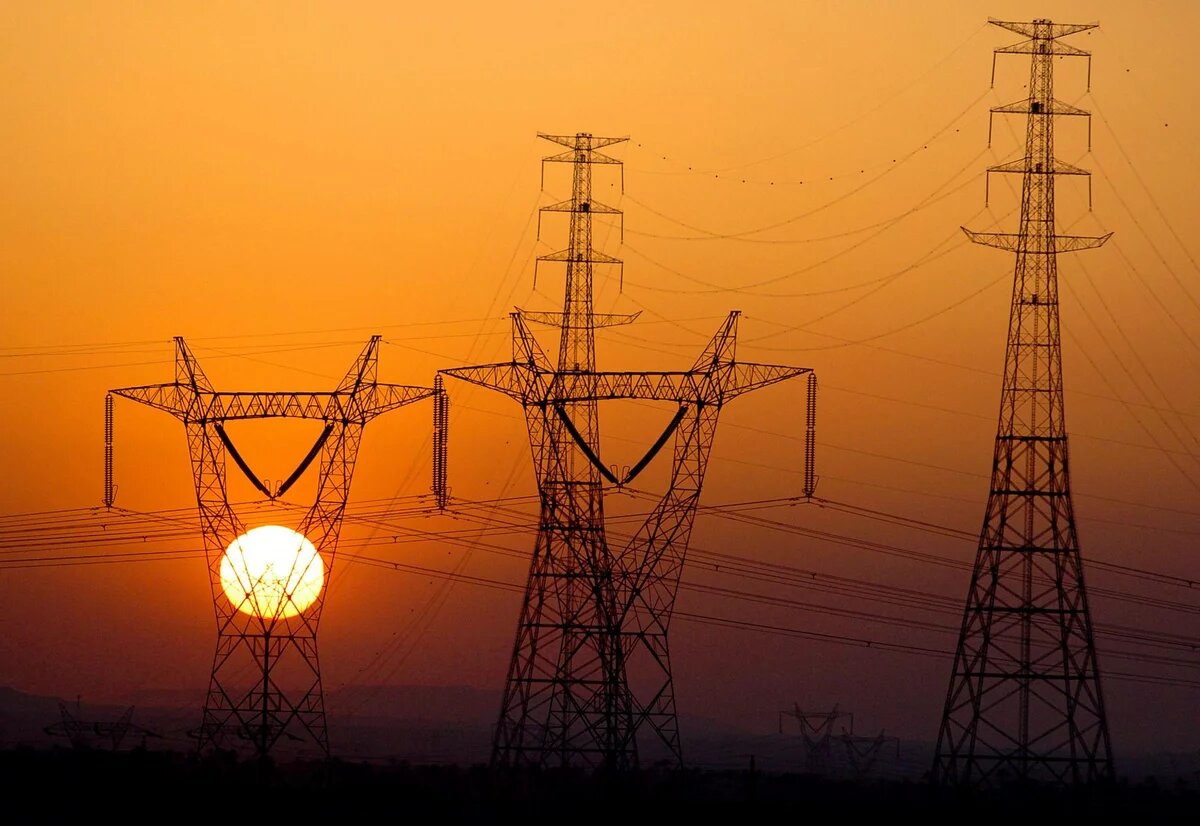The economic situation of the Egyptian population is becoming increasingly hopeless and protests are being nipped in the bud. Europe must urgently place the security of the people at the center of its relations with Egypt. Only then can the situation in the country improve sustainably.

Translated with DeepL.
Original language: Deutsch
While many people in Germany are still enjoying the summer temperatures, people in parts of Egypt are still suffering from extreme heat of up to 45 degrees. Those who - like most tourists - can retreat to air-conditioned rooms are lucky. But many Egyptians will not be able to do so, as the government is once again expected to switch off the electricity on an hourly basis from mid-September. It was only on July 20 of this year that the Egyptian regime suspended the daily reduction in the power supply. Previously, people outside of Egypt's tourist regions had to go without electricity for two to three hours a day since July 2023.
Electricity Is a Scarce Resource
The main reasons for the energy shortage are the regime's mismanagement and its heavy dependence on fossil fuels. Sixty-six percent of the electricity consumed in Egypt is generated from natural gas, while only 12 percent comes from renewable energy sources.
Until recently, Egypt produced more electricity than it needed. Egypt has two LNG terminals - the only ones in the region. They enable it to export parts of its large natural gas reserves - and in doing so, it is trying to counter the currency crisis that has prevailed for years and the high national debt with foreign currency. It also imports natural gas in order to sell it on as significantly more expensive LNG, but also to cover part of its own needs. However, this system of imports, exports and the country's own energy requirements has been out of balance for several years.
Last year, the regime's calculations no longer worked out: Population growth and unexpectedly high temperatures led to a higher demand for electricity than expected. At the same time, a repayment of 25 billion euros in debt became due. Most of Egypt's debt is owed to the International Monetary Fund (IMF); other donors include Saudi Arabia and the United Arab Emirates. Israel's current war against Hamas is also having a negative impact on the Egyptian economy. Less foreign currency is flowing into the country, which in turn makes it more difficult to import natural gas. The Egyptian regime has been trying to control the situation by rationing electricity. The effects - especially in extreme temperatures - are far-reaching. For example, access to clean water and an unbroken cold chain for perishable food and medicines can no longer be guaranteed.
Industry is not the only sector that depends on a reliable power supply. Private hospitals are also dependent on it. However, unlike state healthcare facilities, they are also affected by power cuts and can only carry out operations and examinations such as X-rays if generators guarantee a stable power supply.
The Necessities of Life Are Unaffordable
To make matters worse, state subsidies for electricity have been gradually reduced since the beginning of August. The Egyptian regime is thus fulfilling an IMF demand. As a result, consumers could pay up to 50 percent more for electricity in future. This would hit many people hard. Almost 30 percent of the population live below the poverty line.
However, the country's economic crisis is also making it increasingly difficult for the middle class to afford everyday products. The prices of many foodstuffs have risen by 45 percent in the last year, having already doubled in the previous two years. The Egyptian pound has lost more than half of its value against the US dollar since 2022. The inflation rate, which reached a record high of 38% in September 2023, has been falling since March. In July of this year, however, it was still over 25 percent. As currently the world's second largest wheat importer (in absolute terms), the country was also hit very hard by the rising wheat prices on the world market triggered by the Russian war of aggression against Ukraine. For the first time since 1988, the Egyptian regime therefore raised the price of state-subsidized bread from 5 piastres to 20 piastres in June - a price increase of 300 percent. Two thirds of the Egyptian population now participate in a programme that allows them to buy 5 flatbreads per person per day at the subsidized price.
Repression Comes Before Protests
In the early summer of this year, discontent arose on social media about the enormous price increases and the ongoing power cuts. Under the hashtag "Dignity Revolution", people called for protests and the overthrow of President al-Sisi. However, before the protests could move from the internet to the streets, Egyptian security forces arrested a total of 119 people in at least six governorates in one day, including at least seven women and one child. The authorities accused them of "membership of a terrorist organization", "publishing false information" and "misuse of social media".
The Egyptian security forces' crackdown is not surprising. The Egyptian regime persecutes its critics mercilessly, systematically arresting, torturing and abducting them. It is now sometimes enough to publish a dance video on TikTok to be sentenced to two years in prison for "violating family values". The human rights situation in Egypt has never been as bad as it is under the current regime.
The fact that protests are still taking place in this repressive climate shows how hopeless the situation is for many Egyptians. This is also confirmed by the interrogation records of two people detained in July, which Amnesty International has obtained. A father of three and a younger man, neither of whom had ever taken part in political actions before, stated that despite working long hours, they were unable to pay even the basic necessities of life from their salaries and had therefore published protest posts on social media.
The Economy in Decline
When he seized power by force in 2013, President al-Sisi promised Egyptians more security and an economic upturn. Eleven years later, the Egyptian economy has hit rock bottom and the country is on the verge of bankruptcy. At the end of 2023, public debt amounted to 96% of gross domestic product. However, the Egyptian regime is not investing the money it has borrowed in fighting poverty or stabilizing state finances. President al-Sisi is not interested in improving the economic situation of the general population. Instead, he is focusing on extremely dubious and expensive, but prestigious mega-projects, such as the construction of a new capital in the middle of the desert.
In addition, the military controls large parts of the Egyptian economy, causing productivity to stagnate and preventing fair competition. Al-Sisi thus secures the loyalty of the military, which traditionally plays the role of kingmaker or rather president, and stabilizes his power. However, he is also promoting corruption, which is widespread in Egypt right up to the highest levels.
It is therefore unlikely that the record sum of 35 billion dollars that Egypt received from the United Arab Emirates at the beginning of this year will improve the country's economic situation in the long term. On the contrary, it is to be feared that the economic situation of the general population will continue to deteriorate and that protests and unrest will increase.
Human Security Must Come First
Despite the catastrophic human rights situation and the extremely unstable economic situation, the European Union (EU) still sees Egypt as an important partner in its southern neighborhood. The European Commission is currently negotiating the details of a strategic and comprehensive partnership agreement with Egypt, under which 7.4 billion euros in financial support is to flow to Egypt. With the current orientation of the agreement, which provides for closer cooperation in the area of migration management, among other things, the EU and its member states run the risk of using this money to strengthen the Egyptian regime under President al-Sisi instead of stabilizing the country.
To avoid this, human security must be placed at the center of cooperation with Egypt. The EU should link financial support and political and economic cooperation to the condition that Egypt significantly improves the human rights situation and respects the rule of law and freedom of expression. In addition, the EU and its member states must insist on the gradual and decisive disentanglement of the military and the economy and the consistent fight against corruption.
Instead of first demanding the reduction of state subsidies for everyday products such as bread and energy, improvements in these areas must also be made a prerequisite for new loans from the International Monetary Fund. This is the only way that the country has a chance of stabilizing itself sustainably and being able to manage without constant new financial aid in the long term. In addition, the EU and its member states could help to ensure that the Egyptian people can finally live in dignity, as they had already demanded during the Egyptian revolution in 2011. And as the participants in the nipped-in-the-bud campaigns demanded again this summer.

